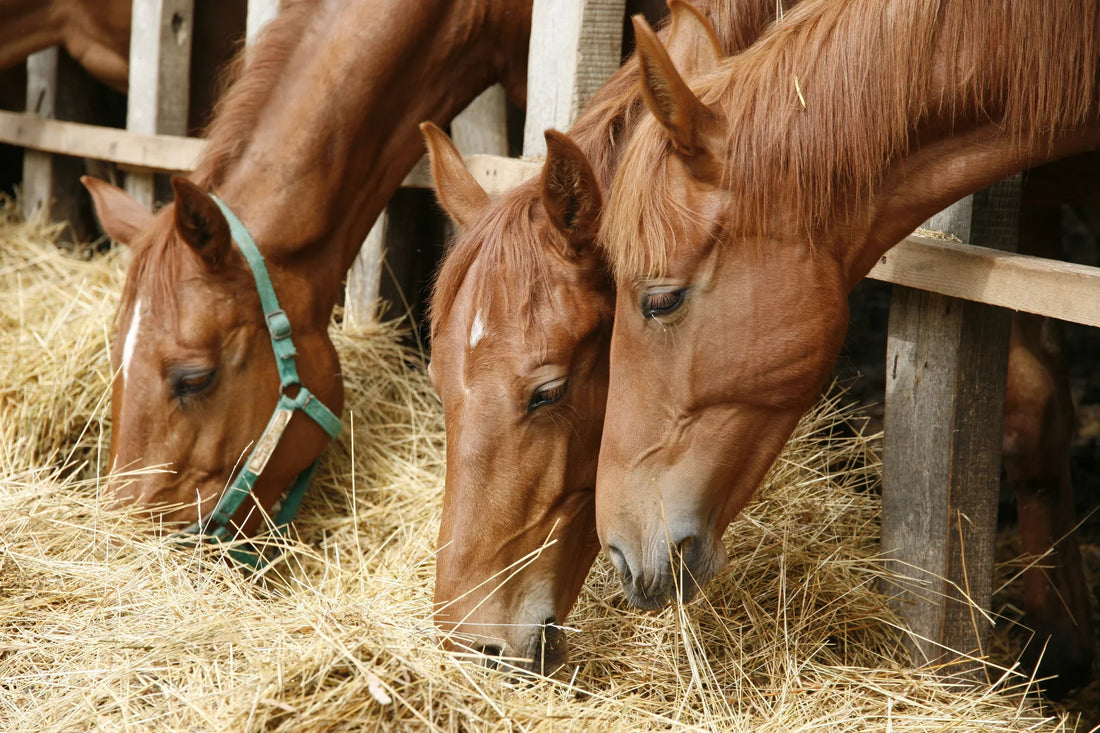
How to feed your horse correctly
Share
The Correct Way of Feeding a Horse: A Complete Guide
Feeding a horse might look simple — just give hay, grain, and water — but in reality, a horse’s digestive system is delicate and very different from ours. Knowing the correct way to feed a horse helps keep them healthy, energetic, and free from colic or weight-related issues.
1. Understand the Horse’s Digestive System
Horses are grazing animals designed to eat small amounts of forage throughout the day. Their stomachs are relatively small and can only process a limited volume of feed at once. Unlike humans, horses cannot vomit, which makes them prone to digestive issues if overfed or fed incorrectly.
2. Forage Comes First
-
Hay and Grass should make up at least 70–80% of the diet.
-
Horses need around 1.5–2% of their body weight in forage daily. For example, a 500 kg horse needs about 7.5–10 kg of hay per day.
-
Good-quality hay or access to safe pasture provides the fiber necessary for gut health.
3. Grains and Concentrates: Only When Needed
-
Concentrates (like oats, corn, or commercial pellets) should only be added if the horse requires extra energy (e.g., performance horses, growing foals).
-
Always introduce grains gradually to avoid colic or laminitis.
-
Never feed more than 2 kg of grain per meal — divide into multiple smaller feedings if needed.
4. Always Provide Fresh Water and Salt
-
Horses drink 25–50 liters of water daily, depending on activity and climate.
-
Ensure constant access to fresh, clean water.
-
Provide a salt block or loose salt — it encourages drinking and helps maintain electrolyte balance.
5. Feed Consistently and Slowly
-
Horses thrive on routine. Feed at the same times each day.
-
Use slow feeders or hay nets to mimic grazing and reduce boredom.
-
Avoid feeding directly on sandy ground — it increases the risk of sand colic.
6. Special Considerations
-
Senior horses may need soaked hay cubes or special feeds if teeth are worn down.
-
Easy keepers (prone to obesity) may need restricted grazing with a grazing muzzle.
-
Performance horses often require additional fat or protein supplements.
7. Golden Rules of Feeding Horses
-
Forage first, concentrates second.
-
Feed little and often.
-
Make all feed changes gradually.
-
Always provide fresh water.
-
Balance the diet with vitamins and minerals as needed.
Final Thoughts
Feeding a horse correctly is about balance, consistency, and understanding their natural needs. Prioritize forage, add concentrates only when necessary, and never forget water and salt. A well-fed horse is a happy, healthy horse — ready to perform, play, and live a long life.
